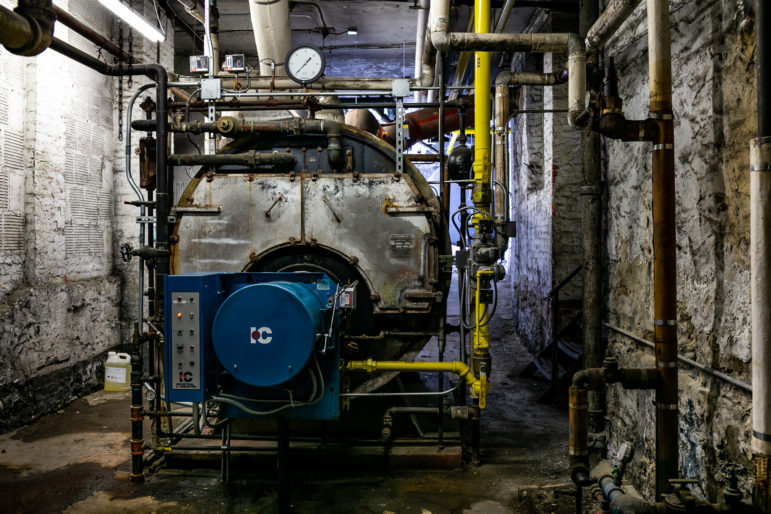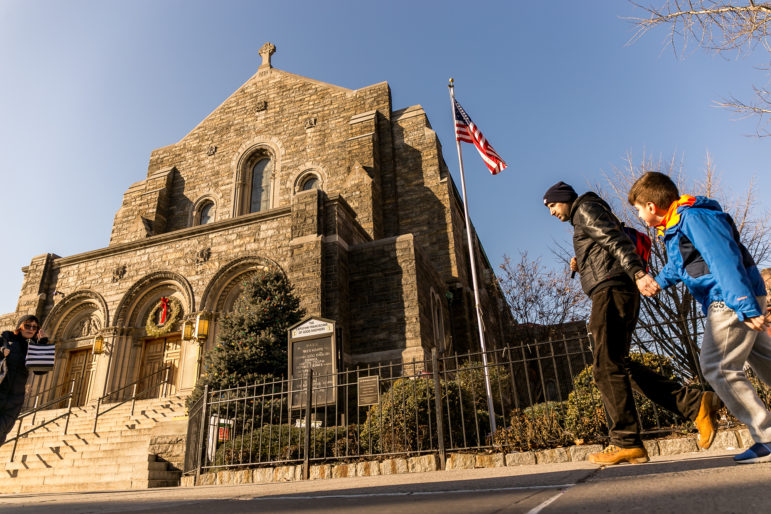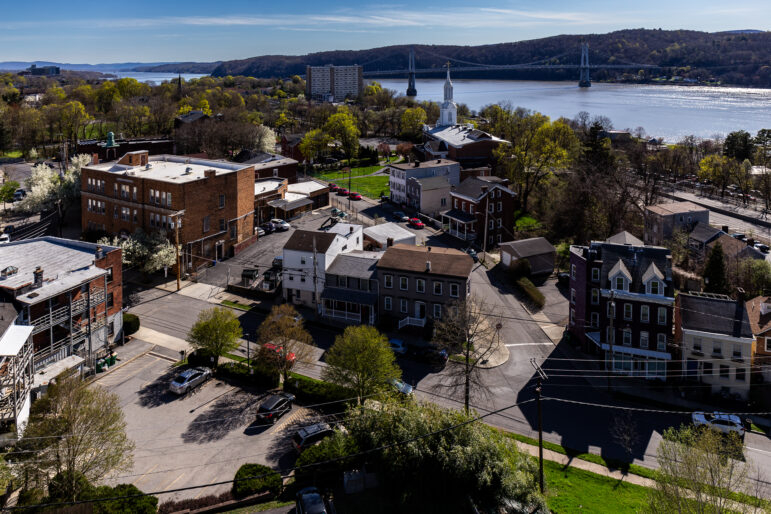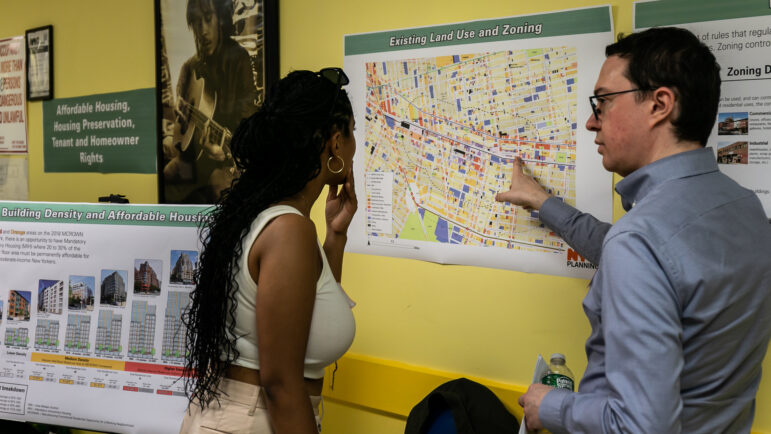The City Council’s Committee on Environmental Protection met Tuesday to discuss a newly introduced bill banning heating oil No. 4 by 2025, five years earlier than was agreed upon when Local Law 43 passed in 2010.

Adi Talwar
A building boiler. Property owners will need to speed up their plans to phase out more polluting heating fuels of the new legislation passes.Legislators are considering a measure that would phase out a heavily polluting heating oil—prevalent in buildings in environmental justice communities and in more than 200 city schools—sooner than planned.
The City Council’s Committee on Environmental Protection met Tuesday to discuss a newly introduced bill banning heating oil No. 4 by 2025, five years earlier than was agreed upon when Local Law 43 passed in 2010.
That legislation initiated the citywide phaseout of oil No. 6, the most noxious heating oil in terms of air pollution. Buildings transitioned off of No. 6 by 2016 and were required to use a form of oil No. 4 with less sulfur content than was previously allowed. The transition off of oil No. 4 was then supposed to happen for most buildings, with some exceptions, by 2030.
Committee Chair James Gennaro, who sponsored the new legislation, noted that the earlier timeline would go back on a previous handshake deal with landlords, forcing them to transition faster. But he pointed out that boilers no longer need to be fully replaced to switch to a cleaner oil. He also emphasized that the benefits to air quality, particularly in communities of color, is a strong rationale for making the switch sooner.
“We made a deal that people could use this stuff until Jan. 1, 2030, and now we’re changing the deal,” said Gennaro. “For the purpose of full disclosure, this is not the way [we] ordinarily like to operate. But things have changed in the last 10 years.”
The implementation of Local Law 43 had a significant impact. Since oil No. 6 was completely phased out, air quality notably improved, particularly in communities of color, including northern Manhattan and areas of The Bronx.
Scientists at Columbia University Mailman School of Public Health and Drexel University found that a citywide ban on oil No. 6 led to decreased pollutants from 2012 to 2016, when the transition off of that oil began to when the ban was fully instituted.
“Traditionally vulnerable socioeconomically disadvantaged areas experienced the greatest proportion of health benefits from the No. 6 conversion,” said Angela Licata, deputy commissioner of sustainability for the Department of Environmental Protection, in the hearing.
Still, health data from the city shows that fine particle pollution led to at least 2,000 deaths between 2015 and 2017 alone. And in an April report, the American Lung Association gave Manhattan, The Bronx and Queens “failing grades” for air quality related to ozone pollution linked to building emissions and vehicles.
Currently, 3,366 buildings in the city use oil No. 4, and 1,517 of them use it only as a backup fuel during high-need times, such as especially cold days, said Angela Licata, Deputy Commissioner for Sustainability at the New York City Department of Environmental Protection. Nearly three-fourth of those buildings are in environmental justice communities.
As of last year, 231 city schools were still burning No. 4 oil, and 180 of those have not begun retrofitting their boilers off of the polluting fuel, according to Julia Casagrande of the Mayor’s Office of Climate and Environmental Justice.
“We are looking to electrify as many schools as possible, as quickly as possible,” said Casagrande, adding that the city is also working to retrofit schools to switch to a cleaner heating oil in the meantime.
Representatives from WE ACT for Environmental Justice and the New York League of Conservation Voters were among those who testified in favor of the measure, which was sponsored by Gennaro and five other Council members.
“While many buildings have phased out of this oil, buildings in low-income neighborhoods and neighborhoods of color still burn No. 4,” said Lonnie Portis of WE ACT, noting higher-than-average levels of asthma in those communities. “Ultimately banning No. 4 fuel oil by 2025, five years earlier than currently projected, will lead to direct air quality improvements.”
One detail the city officials pushed back on was a transition deadline of January, asking instead for a July date to be used so as not to risk non-compliant boilers being shut off during winter months, which Gennaro took into account.
“We don’t want to hurt people,” said Gennaro. “A little bit of cold water is not as bad as no heat.”
But he said he stands by the more aggressive timeline to ensure that the city moves quickly with greening its buildings, and pushes the private sector into compliance. “This, unfortunately, is going to be a situation where the city really has to lead by example and kind of figure it out,” he said.
Building owners can receive assistance in making the transition from sustainability experts through the city-run NYC Accelerator Program, which as of last month had already served more than 9,000 buildings in need of retrofitting, city officials said.
This measure comes as the city works to assist landlords in decarbonizing properties under Local Law 97, which requires that buildings over 25,0000 feet reduce emissions 40 percent by 2030 and 80 percent by 2050. In May, several building owners filed a lawsuit referring to the legislation as “ill conceived and unconstitutional” and calling its emission reduction requirements “draconian.”
In a statement to City Limits following the filing, the city’s Department of Buildings maintained that it is committed to enforcing the local law.
Meanwhile at the state level, environmental advocates were disappointed last week when the All-Electric Buildings Act, which would have banned gas hookups in new building construction—similar to a law the city approved late last year—failed to pass the Assembly or Senate before the legislative session ended on Friday.
“Every day, especially in environmental justice communities, people die from air pollution from fossil fuel combustion,” wrote a group of climate and environmental justice advocates in a statement following the session.
Liz Donovan is a Report for America corps member.










One thought on “Council Considers Faster Timeline to Phase Out Polluting Heating Oil in NYC Buildings”
Lorem ipsum 123 789